The Early Career Research and Innovation Fellowship scheme is intended to assist those at a relatively early stage of their research careers to establish their research and innovation portfolio and/or develop a new research area or collaboration. Please read the profiles below to find out more about this year’s ECRI Fellows and their plans for the year ahead.
Dr Yael Arbell, Research Associate, CRESR
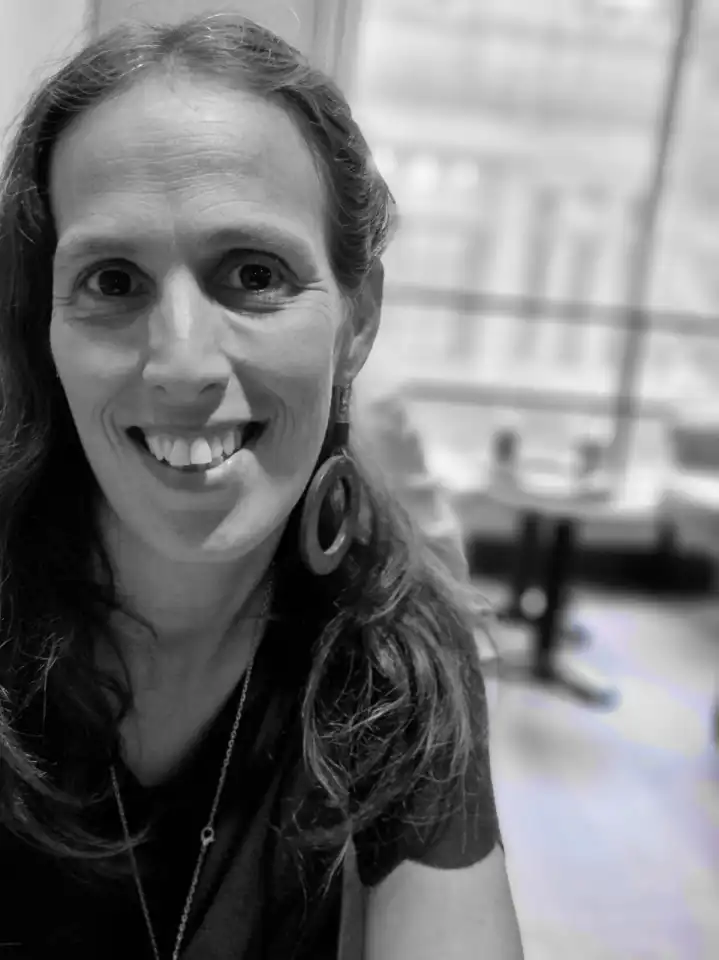
I am a researcher at CRESR, working mainly on housing and sustainability, with an expertise in community-led housing and an interest in questions of equity, power and racial justice. Since completing my PhD at the University of Leeds in 2021, I have researched different ways in which community-led housing development can include marginalised group. In 2022 I led a small study (funded by the Nuffield Foundation)(https://www.nuffieldfoundation.org/project/housing-21-exploring-a-more-inclusive-model-of-cohousing) that explored a new model where a housing association invited racially diverse and economically deprived communities in Birmingham to develop cohousing developments for rent. In 2023 I joined a team of practitioners and academics in action-research on the opportunities and barriers of BME-led community led housing
(https://leedscommunityhomes.org.uk/community-led-homes-for-all/). This project highlighted racial justice issues with policy implications for government, lenders and community organisations.
These intersections of race and class are important elements in a policy context where housing development is a complex, expensive and difficult endeavour, making it more accessible to more privileged groups. One way to overcome some of these barriers is through collaborations between groups of prospective residents and more powerful and professional organisations such as housing associations, local authorities, community organisations and private developers. This approach is the focus of the ECR Fellowship.
The ECR fellowship will look at a range of co-production models and explore questions of power and agency, opportunities for greater inclusion and their limitations. The fellowship is an opportunity to develop as a research leader, enhance my connections with sector actors and develop a grant application for a large- scale study of housing co-production. I will be working with one of our PhD students, Rowan MacKay, who is working in and researching housing co-production. Working in a busy research centre, it is a privilege to have time and resources to develop my interests and my professional skills.
Dr Ben Archer, Senior Lecturer in Law, Institute of Law & Justice
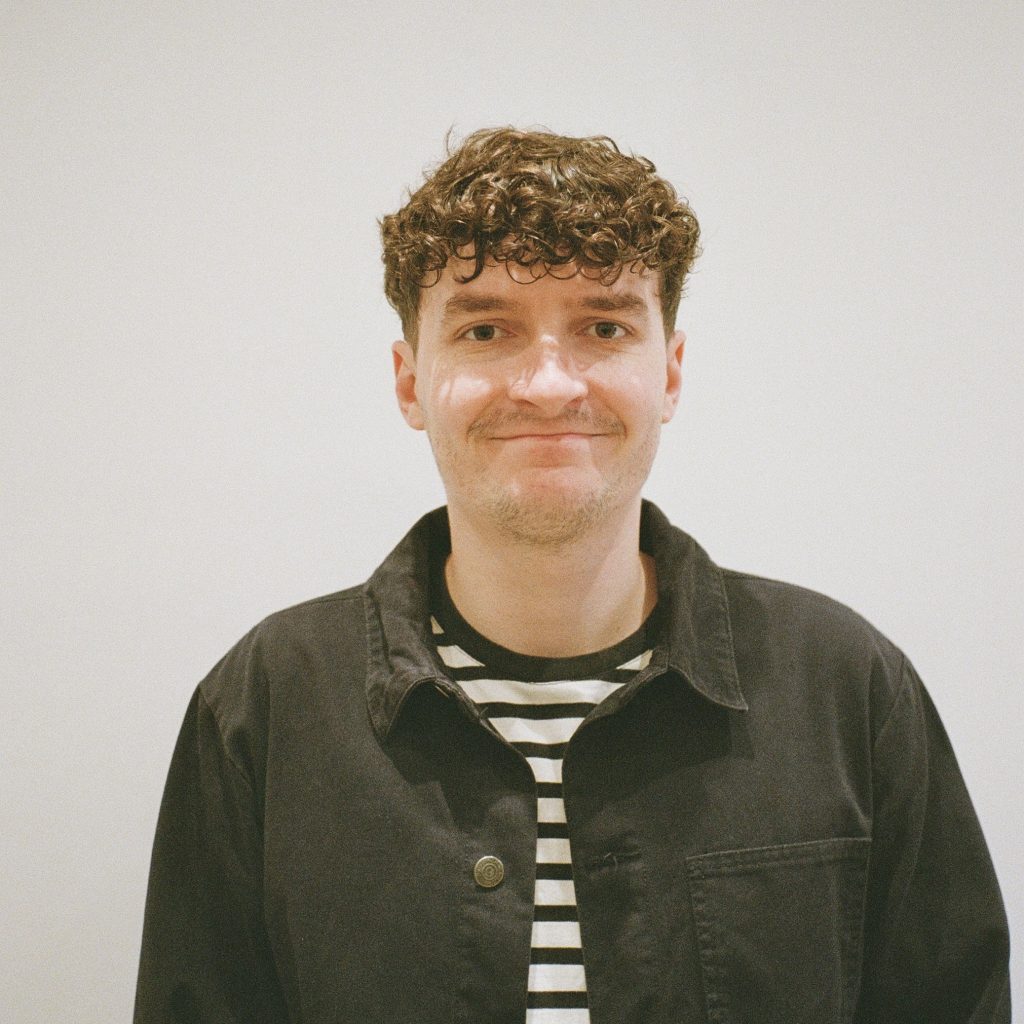
I’m a Senior Lecturer and ECR in the School of Law. I have been at Sheffield Hallam since I started my undergraduate degree in 2015 and became a member of staff in 2021.
My research interests lie in exploring the relationship between social control and anti-social behaviour, with a specific focus on how policing bodies use hybrid civil/criminal powers to regulate the sub-criminal behaviour of vulnerable citizens. My PhD examined how local authorities and police forces across England navigate the statutory framework for implementing a specific power – Public Spaces Protection Orders – and I would like my future work to consider the lived experiences of those who face criminalisation due to their vulnerability.
The ECRI Fellowship offers the chance for me to develop into an independent researcher following the completion of my PhD. During the Fellowship, I plan to translate one of my thesis’ findings chapters into a journal article ready for submission. I will also respond to the findings of my PhD by creating a best practice guide for practitioners looking to implement a Public Spaces Protection Order, which I will disseminate through relevant practitioner organisations. Finally, I will use the Fellowship to develop a new collaborative research bid with senior colleagues exploring the regulation of anti-social behaviour, in which I will be the Principal Investigator.
Dr Ehsan Badakhshan, Lecturer, Sheffield Business School
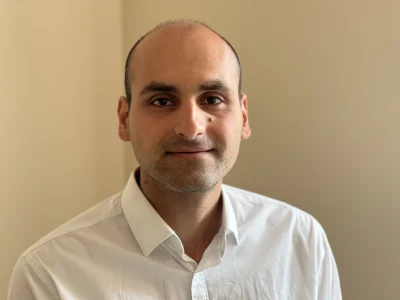
I am a Lecturer in Supply Chain Management at Sheffield Business School. My primary research focus centres on the application of Industry 4.0 technologies to enhance decision-making processes and strengthen the resilience of supply chains against various disruptions.
In my ECR fellowship, I aim to explore and develop innovative solutions that improve the sustainability and operational resilience of Small and Medium-sized Enterprises (SMEs). SMEs play a crucial role in the economy but often face significant challenges, including limited resources, operational inefficiencies, and a heightened vulnerability to disruptions. My fellowship specifically targets the implementation of digital twin technology, a decision-making support tool that provides real-time monitoring, analysis, and optimization of business processes. By integrating digital twins into SME operations, I strive to tackle these challenges, enabling businesses to optimize resource use, enhance efficiency, and better withstand disruptions.
Dr Rebecca Brownlow, Senior Lecturer, Natural Built Environment
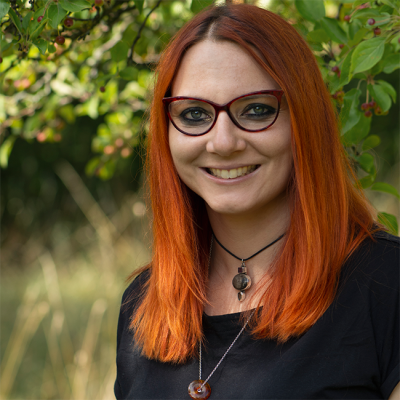
I am a Senior Lecturer in Environmental Science interested in air quality and greenhouse gas emissions. I joined Sheffield Hallam in 2022 in the Geography, Environment, and Planning subject group.
Prior to joining SHU, I was a senior environmental scientist at Golder (now WSP) focusing on aspects of waste management (predominantly landfill gas) and air quality topics. Previously I worked in greenhouse gas research as a post-doctoral researcher at the University of Groningen, Netherlands, on vertical greenhouse gas profiles using AirCores, a type of atmospheric sampling system. I gained my PhD entitled ‘Tropical methane emissions: using isotopes to characterise source signatures’ in 2017 from Royal Holloway, University of London.
This fellowship offers me the opportunity to focus on expanding my research and developing new collaborations after transitioning back to academia from environmental consulting. During the fellowship, I will focus on the FireUp project, a collaboration with Dr Joe Glentworth. This project investigates the impacts of burning on air quality in the Peak District by establishing a particulate matter (PM) sensor network (10 sensors have already been deployed!) and conducting a related perceptions study. The Peak District presents a valuable case study for monitoring air quality impacts from upland fires due to:
The frequent occurrence of wildfires, which are projected to increase significantly.
Controlled burning, primarily for grouse moors, being widely used in landscape management, with data suggesting it’s one of the most intensively burnt areas in England. The presence of significant human and ecosystem receptors, including visitors, residents within the park, and the nearby populations of Sheffield and Manchester.
The research has the potential to inform fire management strategies and enhance air quality, both locally and in comparable landscapes.
Dr Rose Butler, Senior Lecturer, Art & Design
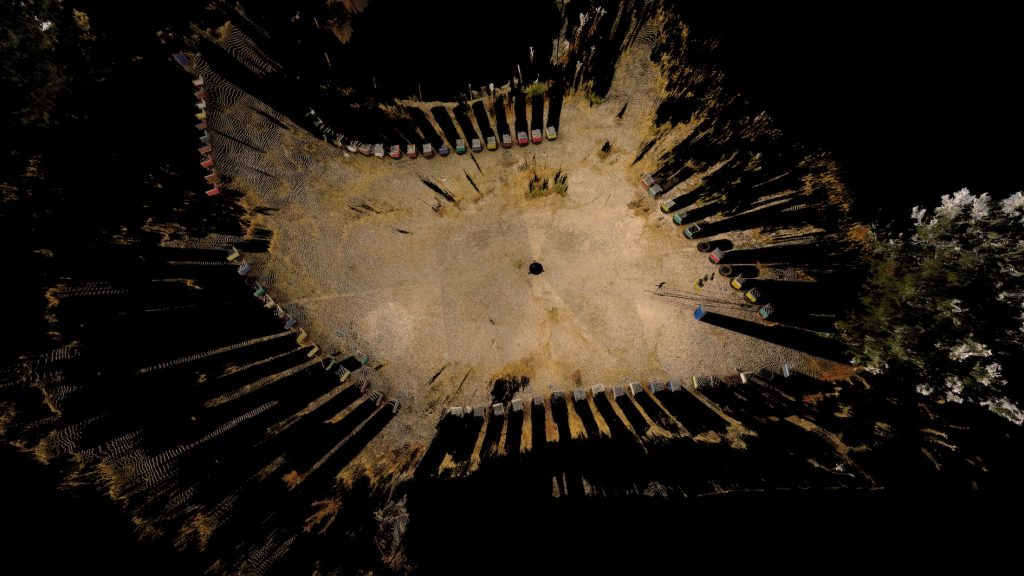
I am an artist, researcher, and senior lecturer of Fine Art and have worked across many academic roles within the Sheffield Creative Industries Institute (SCII). I completed a doctoral scholarship (2023) titled Special Operations: Deploying artists’ methods to investigate surveillance.
I use adapted technology, custom built software and new media, alongside early cameras and analogue technique to make interactive installations, single and multi-screen videos or large-scale photographs. Current research examines borders, bordering, definition, resolution and the image, it crosses paths with the politics of big tech and surveillance. Through arts research, situated and collaborative practices I examine physical and digital, visible and opaque power dynamics.
Most of my research is practice based and results in artefacts and exhibitions presenting multiple outputs such as art work, performances, presentations, publications and awards (see UNLAND). I am particularly interested in cross-disciplinary and interdisciplinary practices. My research has a double focus on academic as well as societal impact. Before joining academia I lived and worked in London providing arts education to disadvantaged people and minority groups, within diverse communities. These experiences contribute towards my understanding of the impact and potential of creative practice and arts research (particularly with marginalised people) and the articulation of arts research methods.
I am currently working on publications around the development of innovative interdisciplinary methodologies between art (ADMRC) and security (CENTRIC) funded by BA/Leverhulme-small research grants (2024) and internal funding. The research will bring forth understanding of the impact of social media within small communities and will complement community cohesion strategies supported by creative methodologies. The project brings together a team of early career researchers, artists, activists and senior academics in security and the arts.
Alongside this research project I am developing new film and photography work (see Fig Leaves and 16 mm film / 16mm film details) for an exhibition as part of The River Dôn Project, led by Opus Independents. The partnership with SCII and a number of local, national and international partners, aims to demonstrate the potential impacts of obtaining legal personhood for the River Dôn.
I am a member of Toolkit of Care, a network within The European Cooperation in Science and Technology (COST) and have recently joined a new COST network that will commence this year; Artistic Intelligence – Responsiveness, accessibility, responsibility, equity (ARTinRARE). Last year I presented work at the following conferences and I am currently working on publications:
Deathscapes: Histories of Photography and Contemporary Photographic Practices, 7th International Conference of Photography & Theory (ICPT), Nicosia, Cyprus (2024)
The Art of Resistance: National Association for Fine Art Education, UCA (2024)
Improvising Care:Toolkit of Care, COST, McGill University, Montreal (2024)
ArchivingCare: Toolkit of Care, COST, NeMe, Cyprus (2024)
Surveillance in an Age of Crisis: The 10th Biennial Surveillance Studies Network / Surveillance & Society Conference (SSN 2024), Ljubljana (2024).
Dr Maria Luisa Davila Garcia, Lecturer, Computing
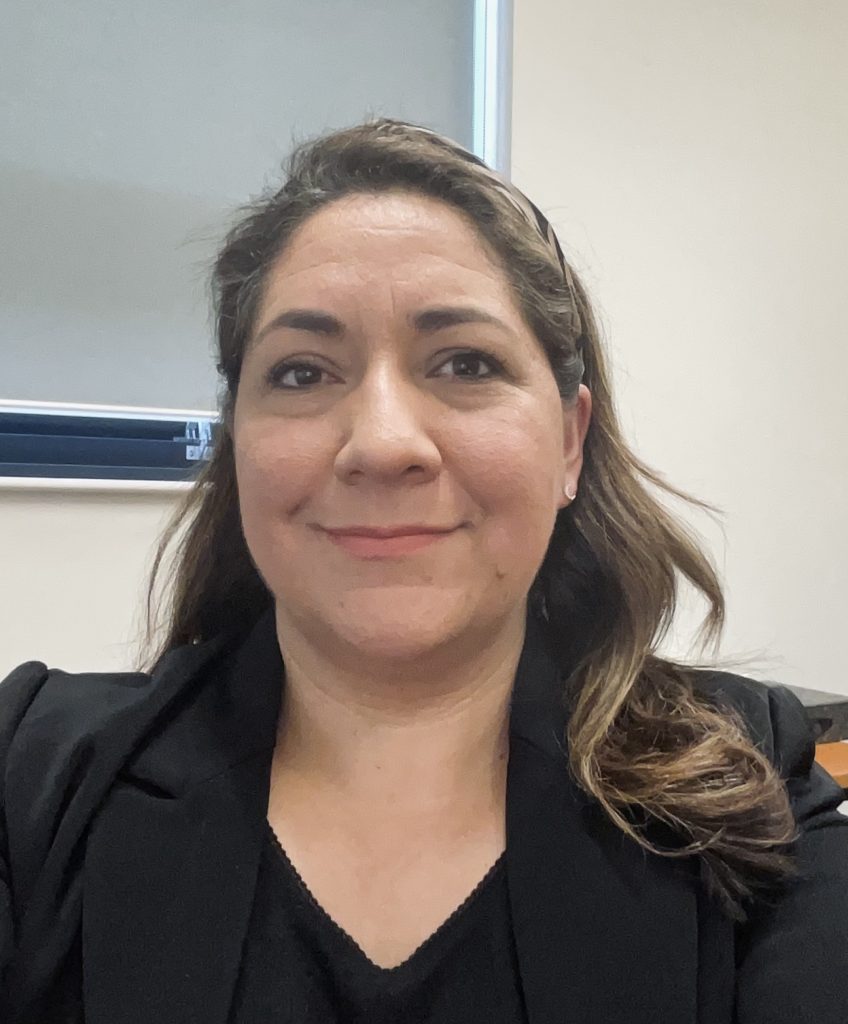
Over the last decade, my research has focused on applied Artificial Intelligence and Digital technologies in the Healthcare area, across a breadth of techniques including machine learning, NLP techniques, medical image processing, pattern recognition, and adaptation of AI in health-related digital solutions.
My academic outputs evidence my involvement and expertise in the integration of AI techniques in multidisciplinary projects, contributing to the adaptation of digital development. My PhD study was focused on the development of a methodology to analyse in-vitro images- in collaboration with the Andrology Department from Sheffield Teaching Hospital, demonstrating the suitability of a multimodal approach supporting early diagnosis.
As a Research Associate, I worked on developing an ML framework for early detection of Papilloedema and Diabetic Retinopathy”. The potential impact was demonstrated with the integration of the digital solution into a mobile phone SW and presented as a proof of concept as a telemedicine tool for early diagnosis.
As part of my career as a Computer Scientist, I have developed a passion for integrating AI solutions for the benefit of two main sectors of the population: children and women. In the last two years, I have been researching the integration of AI solutions supporting mental health for women from minority groups. In 2023, we were granted an award for the development of a methodology to enhance and promote access to services from the Perinatal Mental Health Care Pathway.
I have been awarded the Early Career Researcher and Innovator Fellowship from Hallam University. The ECR fellowship would allow me to research efficient and applicable solutions based on Multimodal AI (MAI) for healthcare. My proposed work is to design a novel MAI framework for medical image analysis and mental health assessment, integrating the potential of multimodal AI as an approach to reduce bias and address the requirements of interpretable and equitable machine learning methods.
As main objectives for this Fellowship are to research and design an MAI framework to integrate text and images in the assessment of mental health and rare medical conditions, as well as research and evaluate data-driven strategies to reduce bias in the development of MAI (creation of synthetic data in four data modalities: rank, time-series, text, and images).
Dr Kathy Davies, Researcher, CRESR

I am an early career historian with expertise in interdisciplinarity, multimethodology, and social, political, environmental, and imperial history. My background using newspaper archives and modern political papers, contemporary oral histories, and in public and policy engagement underpins my most recent work on historical approaches to sustainability research. My research focusses on national energy transition, historic experiences of poor air quality and ‘Clean Air’ policy, and how histories of fuel and power can inform public discourse and decision-making on energy and environment in the present day.
My ECRI fellowship centres on two research strands: ‘Sustainability and Interdisciplinarity’ and ‘Local Heritage, Creative Outputs, and Policy Engagement’. Strand one builds on my research for JustHeat (CRESR, 2022-2025) – an international, interdisciplinary project investigating home heating histories to inform energy policy. It promotes historical methods and interdisciplinarity in sustainability research. First, through the completion of a co-authored book, Was the Past More Sustainable? This collaborative project looks at themes including travel, heating, and waste disposal through an historical lens to consider the environmental impact of past ways of living. Second, through a project area titled, ‘The Case for Gas: Selling Energy Transition in Britain’. This research addresses the wider social and cultural significance of the transition to gas to explore its impact and legacies. The research centres on archival sources at Churchill Archives Centre, University of Cambridge, where I am an Archives By-Fellow 2024/5. The ECRI fellowship is supporting my work at Churchill College, enabling my full participation in academic activities during this research, and cementing my existing networks within the University of Cambridge.
Strand 2 of my fellowship draws on my research for StreetLife (University of York, 2022), which used local heritage and creative outputs to promote social and economic renewal and facilitate stakeholder discussions on the public realm. It focuses on cultivating professional relationships in heritage and creative organisations in the Sheffield City Region, specifically Sheffield Museums Trust and Arts Catalyst, to develop an application to the AHRC Catalyst Award (£300,000). The proposed two-year project, Sustainable Futures Past, will centre on South Yorkshire’s social and environmental heritage to deliver creative outputs to facilitate community engagement with sustainability policy. The synthesis of both strands will maximise my previous research experience, provide long-term career direction, and confirm my identity as an innovative historian a/effecting future change.
Wei Deng, Research Fellow, Materials and Engineering
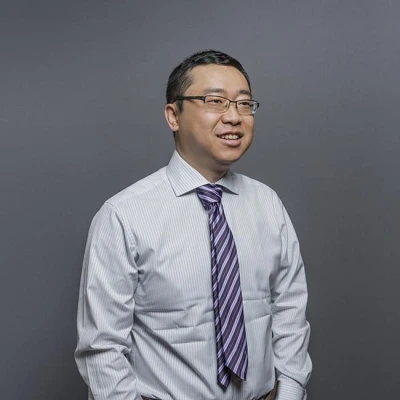
I am a Research Fellow specializing in glass materials, My research interests broadly cover various silicate/non-silicate glass and glass-ceramic materials. Since joining Sheffield Hallam University in 2016, my research has focused on achieving decarbonization and Net-zero strategies for industrial glass production. This critical area of study is pivotal to the future sustainability of foundational industries and the preservation of the global environment.
Over the years, I have explored and successfully implemented various methods and technologies for low-carbon glass production. However, The ECRI Fellowship offers me a unique opportunity to explore innovate idea while supporting my transition from a research executor to an organizer and leader.
In ECRI Fellowship, my research focuses on optimizing the specific heat capacity of silicate glass through compositional adjustments to reduce melting energy consumption. This parameter, often overlooked in the research of glass decarbonization, holds significant potential for energy efficiency improvements. This project innovatively combines the optimization of specific heat capacity with adjustments to melting temperatures, aiming to systematically refine glass compositions and provide a novel pathway toward achieving zero-emission glass manufacturing. This fellowship will also prepare me to secure external funding and achieve high originality, high-impact research.
Additionally, the fellowship will enable me to develop leadership skills by organizing and managing a small research team, guiding and supporting team members to accomplish key scientific tasks. My work will contribute to the green transformation of foundational industries while facilitating my own evolution from an academic researcher to a research leader, driving sustainable advancements in the glass sector.
Dr Ben Edmans, Senior Lecturer in Mechanical Engineering in the School of Engineering and Built Environment
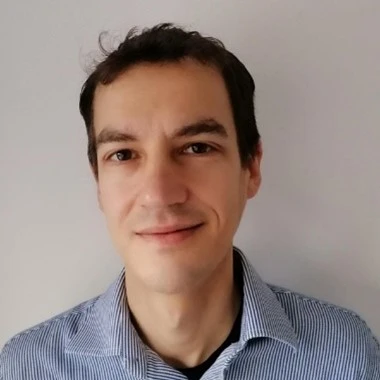
I am a Senior Lecturer in Mechanical Engineering in the School of Engineering and Built Environment, specialising in computational solid mechanics. My research interests involve the development of computational models for predicting the mechanical response of granular materials, including approaches such as Finite Element Analysis and multi-scale modelling.
Granular materials are widely used in the food processing industry, and operations such as conveyancing, milling, mixing and compaction are critical for production. Operational phenomena (such as jamming) and properties of final products (including palatability) emerge from micro-scale mechanics, but are hard to predict. Recent developments have demonstrated the capability of computational simulation to optimise processes and products involving granular materials. A key tool in these efforts is Discrete Element Modelling (DEM), a simulation technique in which individual particles and their contact interactions are directly represented. However, adaptation of these techniques to the range of real particles (with irregular shapes and inelastic material response) used in the food industry remains a significant challenge.
SHU’s research centre AFIC (formerly NCEFE) has a track record of supporting the food industry in projects involving granular materials, particularly in optimisation of rice milling. The aim of my ECR project is to develop particle simulation capability at AFIC by establishing particle characterisation tests and parallel simulation capability. I aim to develop characterisation tests to determine particle shape using 3D image reconstruction tools; and determine mechanical response (stiffness, friction coefficients and coefficient of restitution) using custom experimental rigs. Results will be used to calibrate DEM simulations of bulk granular flow, which will then be validated against large-scale tests. Completing this project will provide AFIC with experimental and computational tools to engage in consultancy and collaborations involving a wide range of particles used in the food industry.
I am really excited to undertake this fellowship as it allows me to develop experimental apparatus that will support further work in this complex and fascinating area, including both industry-focussed projects and fundamental research into the behaviour of soft granular matter.
Dr Ester Ehiyazaryan-White, Senior Lecturer, Sheffield Institute of Education
SIOE Representative on the Research Ethics Committee for Taught Programmes (TPREC) SSA
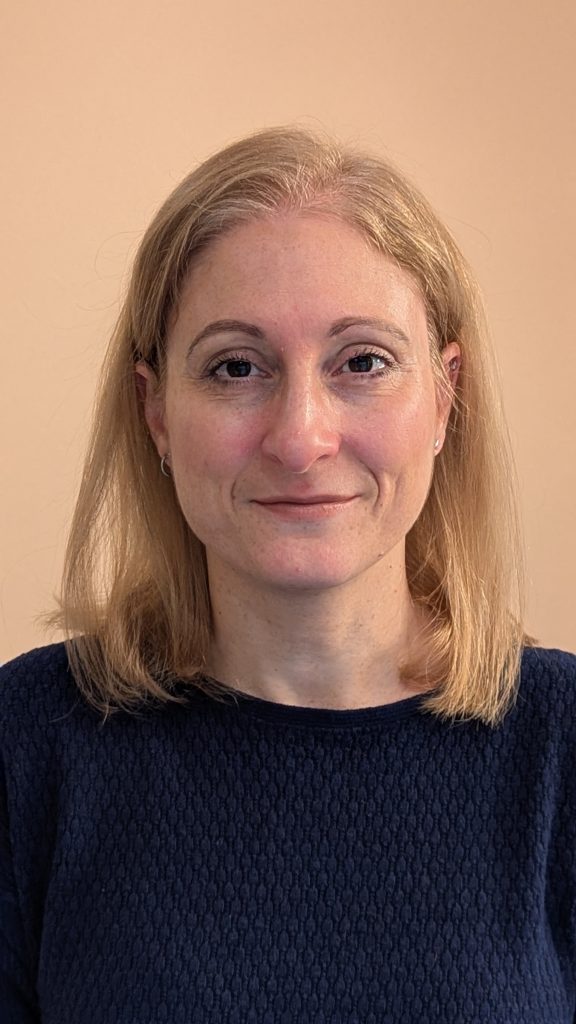
I am a Senior Lecturer in Childhood and Early Childhood at the Sheffield Institute of Education and the UREC Representative for Taught Programmes in the institute. My research and scholarly work has focussed on exploring the early literacy practices of migrant and multilingual families and their children. I have recently published an article on the ethics and methodology of this work in Qualitative Research (QR) journal. I am also the Co-investigator on a SIRKE-led project evaluating the efficacy of a tiered language support programme for Y1 pupils through a clustered randomised controlled trial.
In my research I explore opportunities for connecting the multicultural and multilingual practices in children’s homes to the literacy practices within primary classroom contexts. Within this I build on research which takes a repertoire approach to language and communication – acknowledging that children’s communication is distributed across a variety of modes, often across more than one language, is embodied and connected to the places and spaces within which it unfolds.
I aim to connect this work with the oracy agenda and opportunities for dialogic teaching in primary schools. The current government has placed a focus on oracy in the curriculum and this will feature in the upcoming curriculum and assessment review. This focus on oracy is expressed as developing ‘the confidence and skills to use their voice to overcome barriers and make the most of their lives’ (Starmer in Oracy Education Commission, 2024). However, in describing skills the current framing of oracy in curriculum guidance rarely acknowledges children’s full communicative repertoire (beyond speaking monolingually and listening attentively). Further, in discussing barriers, there is rarely an acknowledgement that these can be structural and require change in the way children’s and parents’ cultural backgrounds and knowledges are represented and valued in institutional contexts.
Through the ECR fellowship, I will build on my previous work with migrant and multilingual families and work co constructively with teachers in primary schools and parents and carers whose children access these settings. We will seek ways to consider oracy and dialogic teaching differently, taking into account cultural, relational, embedded and embodied aspects of children’s communication. The evidence emerging from the research will be communicated to school leadership teams and governing bodies as well as to parents and caregivers, in this way engaging local communities in culturally responsive and cohesive practices.
Dr Anna Liddle, Lecturer, Sheffield Institute of Education
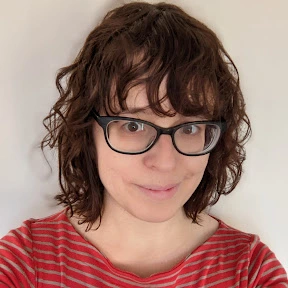
I am a Lecturer in Education Studies in the Sheffield Institute of Education. I teach on the BA Education with Autism, Disability and Special Needs, and the BA Education with Psychology and Counselling, and supervise research projects at undergraduate and postgraduate level. I completed my doctorate at Leeds Beckett University on the topic of how schools teach about peace and war. This included an exploration of the militarised practices of war remembrance. I joined Sheffield Hallam in 2022 from working at the Universities of Leeds and York.
My research interests focus on peace education and citizenship education, and how young people can make their voices heard. After my PhD, I worked on a number of research projects around this topic. This included The Deliberative Classroom, a project on school students’ critical thinking about the challenges the UK faces as a complex and changing democracy, and Speaking Citizens, a project on the political communicative behaviours of young people.
In the Spring/Summer of 2024, I undertook research on how schools are handling the crisis in Gaza. I have 18 interviews from teachers and other educationalists, and I will spend some of my fellowship time writing up this research for publication. I also plan to expand this project and seek the views of young people within schools.
The fellowship year will also enable me to begin an interdisciplinary project with external colleagues on wider geopolitical issues. This includes examining how geopolitics associated with the UK is manifest through, for instance, the militarisation of school spaces, especially in the context of the previous government’s decision to expand Combined Cadet Forces within state schools and how this may development under Labour. I am also interested in seeing how other civilian spaces are militarised that relate to young people and families, such as Armed Forces Day celebrations in town centres. I also have plans to work with external colleagues to put together a research bid to expand this research beyond the fellowship year.
Dr Mohammad Musameh, Lecturer, Department of Engineering and Built Environment
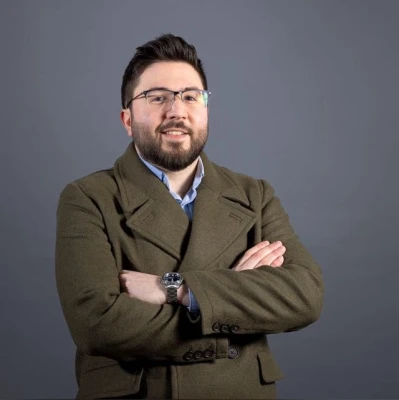
I joined Sheffield Hallam University in March 2023 as a lecturer in electronic engineering within the department of Engineering and Built Environment. Prior to that, I worked in various research and development roles that spanned both the academic and industrial sectors. My research interests focus on developing and integrating technology to address environmental challenges and Industry 4.0 advancements.
Technological advancements, such as self-driving cars, image classification, and voice recognition, are increasing the demand for computing solutions to complex problems. Unconventional computing, particularly computational models based on artificial neural networks, can help overcome these challenges by using a form of computation more attuned to real-world dynamics. These models emulate the structure and function of biological neural networks. However, training a state-of-the-art model (213M parameters-based Transformer), using the conventional Complementary Metal-Oxide-Semiconductor (CMOS) technology, causes 626,155 lbs in CO2 emissions, meanwhile, driving an average fuel consuming car for one lifetime causes 126,000 lbs in CO2 emissions.
Therefore, exponentially growing AI demand poses substantial challenges to the UN race to zero climate action. In-materio reservoir computing, an unconventional technique, is a more efficient framework incorporating functional materials that intrinsically perform required computation. In my ECR fellowship I will leverage unconventional computing knowledge and hardware setup developed as a postdoctoral researcher on a previous project with University of York. Exploring novel computing frameworks and architecture through practical testing and simulation. The fellowship will produce high-quality publications that advance this paradigm, serving as foundations for an EPSRC new investigator award application.
Overall, this fellowship will enable my transformation into an independent research leader within the unconventional field. As a leader in the field, I envision leveraging fellowship outputs to develop a multi-disciplinary unconventional research community at SHU that collaborates with academic institutions and industry to apply unconventional technologies to AI real-world applications, contributing to climate action.
Vahid Nekouie, Senior Lecturer
Dr Shona Patience, Senior Lecturer, Department of Law and Criminology

I am a Senior Lecturer in the School of Law, with a research interest background in interdisciplinary politico-legal studies. I joined the university as an Associate Lecturer in 2018 while finishing my PhD in Public International Law at the University of Lincoln and was appointed a permanent member of staff in 2021.
My research interests previously were around politico-legal areas of international criminal law. My research masters, and subsequent doctorate, explored the International Criminal Court’s definition, interpretation, and prosecution of situations of Internal Violence of a Political Nature, with a particular focus on the Court’s interpretation of the “Gravity” threshold of crimes investigated, and the contextual elements required in the prosecution of the crime of Crimes Against Humanity (Article 7 of the Rome Statute).
More recently, I have begun to explore research opportunities around vicarious trauma in the international legal profession. I intend to use the ECRI Fellowship to explore this research interest further to investigate the prevalence and extent of vicarious trauma in workers within the International Criminal Court organisation, and the impact on their wellbeing. From this work, my aim is to present and publish a journal article from my findings, and ultimately submit a project grant for a larger research project to undertake in 2026-27.
Dr Sarah Reaney-Wood, Senior Research Fellow, Sheffield Institute of Education
I am a senior Research Fellow in the Institute of Education working primarily on contract research, evaluating interventions within the areas of social and emotional learning and outdoor/adventure education. When starting at Sheffield Hallam in 2017 I was also completing my PhD in Animal Welfare and Behaviour. This ECR Fellowship allows me the opportunity to explore my passion for advancements in animal welfare within the field of education, with focus on child development, attitude change and curriculum design. I firmly believe that education provides the foundation for positive social change, yet schools can be criticised for normalising the use and objectification of animals.
Concepts such as nature connectedness and the benefits of the natural world for our psychological and physical health have grown in popularity. Related to this, there has been a recent increase in young people’s concern about nature and out climate which has contributed to these issues becoming a major focus of educational policy, e.g., Climate Change Strategy 2022, National Education Nature Park, and Nature Friendly Schools initiatives, in the UK. Unfortunately, the welfare of animals (domestic, farmed and wild) hasn’t enjoyed the growth in popularity, despite the inextricable link between non-human animals and the natural world. Is this because the benefit to humans is not as tangible? This fellowship will focus on exploring the current state of animal education in English schools.
There are four main strands to this work:
- Mapping the current landscape of animal education, including teacher perspectives on responsibilities, confidence and knowledge
- Development of a theoretical framework explaining key mechanisms by which learning, attitude and behavioural change in animal welfare education can be achieved, using literature reviews, and expert voice.
- Setting up an interdisciplinary research group at SHU
- Holding a networking event to present the work and bring together seminal voices within this field.
Dr Diane A. Rodgers, Senior Lecturer, SCII
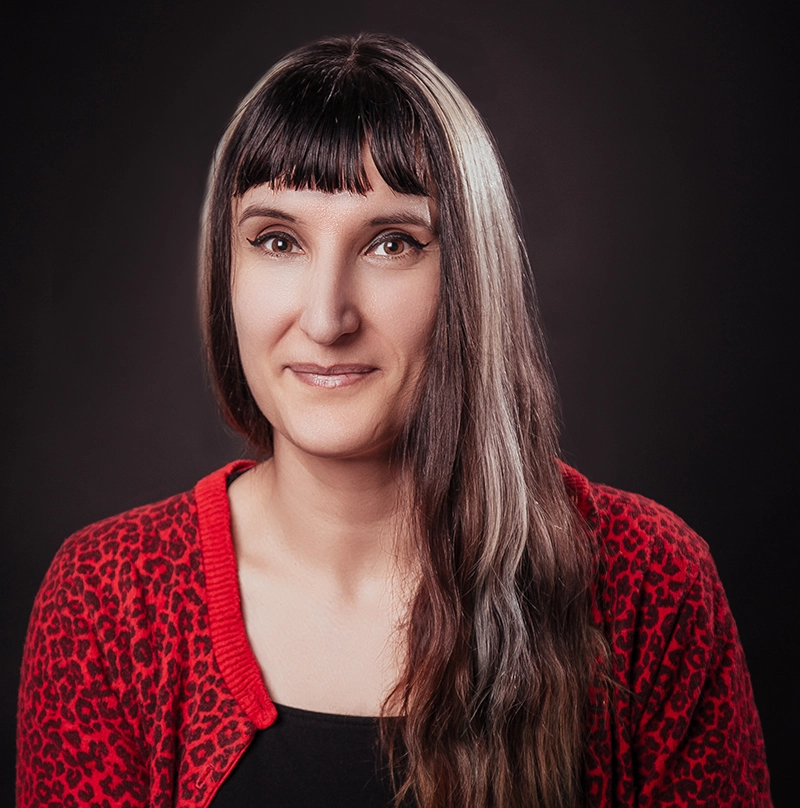
I am a Senior Lecturer in Media and Communication and Film Studies within the Sheffield Creative Industries Institute. I also perform roles as departmental Athena Swan Lead and Early Career Researcher representative. Since joining SHU, I have co-founded the Centre for Contemporary Legend Research Group (CCL) and led several international conferences, recently becoming President-elect of the International Society for Contemporary Legend Research (ISCLR).
My research champions the universality and diversity of folklore as an evolving and adaptive process (as opposed to popular assumptions of folklore as dusty and ancient!). In 2022 I completed my doctorate with a thesis titled ‘Wyrd TV: Folklore, folk horror and hauntology in British 1970s Television’. My research examines the convergence of folklore and the media, and how the presentation of folkloric narratives impacts upon audiences, and wider society, in terms of behaviours, attitudes and beliefs. Within this Fellowship, I am taking the opportunity to develop my thesis into a monograph. In this, I will foreground folklore studies theory as an essential lens through which to interpret current and historical media, to help explain how popular ideas and the impact of the (mis)communication of folkloric tradition and belief shape people’s lives. This work makes interventions in folk horror scholarship, screen studies and folkloristics by foregrounding folklore itself, arguing the case for television as a unique form of folkloric communication.
Other activities for my ECR Fellowship include the production of a journal article, exploring the ways in which legends are reinterpreted on screen and how this, in turn, affects popular belief. This will lead into future research, looking beyond fictional media, to examine contemporary ‘factual’ reportage about folklore and legend. My aim is to examine shifting societal attitudes in coverage of these types of experiences, how 2020s media communicates this (scrutinising methodologies and claims of scientific research), the diversity of representation within this and the potential impact of this on popular belief.
This fellowship will allow me to become a future research leader by developing my international profile and engage meaningfully with my leadership roles, particularly as part of ISCLR. I am committed to supporting future ECRs and PhD students, such as participating as a mentor in the YCEDE Advocacy Scheme, and would like to further develop my involvement in supporting future researchers.
Dr Abdussalam Salama, Lecturer, Department of Computing and Digital Technologies
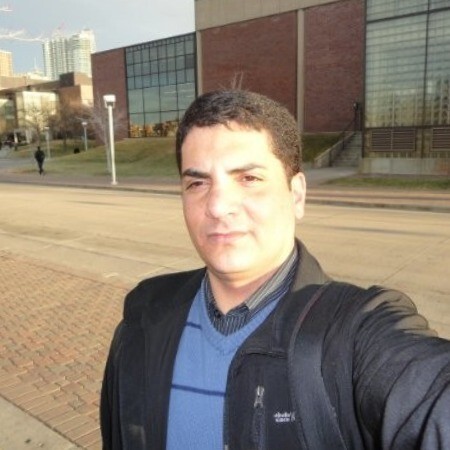
I am a Lecturer in the Department of Computing and Digital Technologies and an Early Career Research and Innovation Fellow at Sheffield Hallam University. My expertise lies in network engineering, cybersecurity, and the adoption of Software-Defined Networking (SDN) technologies such as SD-WAN and SASE to address modern challenges in secure and scalable network design.
My research focuses on advancing network security and the migration of traditional network services, such as firewalls, network management, and monitoring, to the cloud. This aligns with the growing demand for flexible, cloud-native solutions that improve operational efficiency and bolster cybersecurity. As part of my ECRI fellowship, I will explore secure architectures and adaptive frameworks that leverage AI to optimize cloud-based network services and enhance secure communication in distributed systems.
In previous roles, I have spearheaded projects that bridge advanced network technologies with real-world applications. For example, I designed and implemented WorkfromHub, a secure IoT-enabled remote workspace solution, and Go Parkly, a smart parking system powered by NVIDIA AI technology. Additionally, I developed Infraglo, a cloud-hosted control platform for manufacturing efficiency, and created SD-WAN and SASE architectures tailored for SMEs, addressing their security and performance needs while optimizing cloud connectivity.
My fellowship plan is centred on three strategic areas:
Research and Innovation: My goal is to advance secure, cloud-native network architectures using SD-WAN and SASE, integrating AI and IoT for real-time network monitoring, anomaly detection, and adaptive security measures.
Engagement: I will strengthen collaborations with academic and industry leaders, focusing on developing solutions that transition traditional network services to the cloud while ensuring robust security and compliance.
Impact: By addressing critical challenges in cybersecurity and network management, my work aims to enable organizations to adopt scalable, cloud-first network models that support digital transformation and secure connectivity.
Through this fellowship, I aim to produce high-impact research outputs, drive innovation in cloud-based network services, and establish myself as a thought leader in the fields of network security, SDN, and cloud networking.
Dr Ben Strafford, Senior Lecturer, School of Sport and Physical Activity
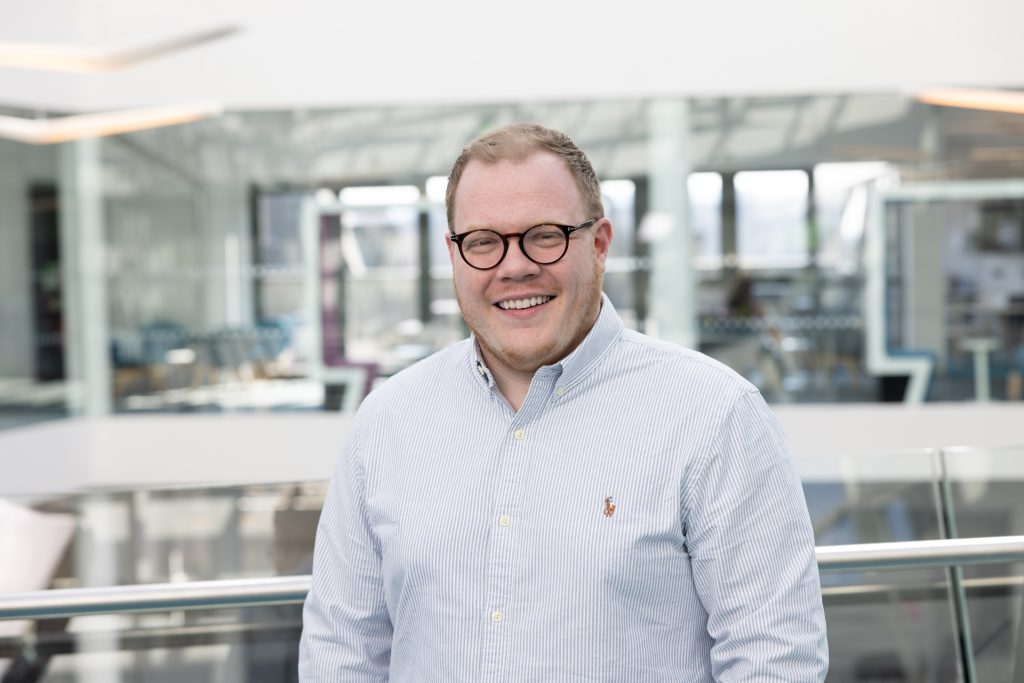
I am a Senior Lecturer in Sport and Exercise Science in the School of Sport and Physical Activity and passed my PhD without corrections in January 2022. Before my PhD, I worked in the Sports Engineering Research Group as a visiting researcher, where I became research active. Since 2018, I have become an established and REF-returnable Early Career Researcher in the area of human movement science underpinned by ecological dynamics, evidenced by 20+ peer-reviewed journal articles and one book chapter (total citations: 394, h-index 7), with several manuscripts in preparation or under review.
The overarching aim of my work is to explore pedagogical methods and practices that transform motor skill development throughout the lifespan. A limiting factor to increasing physical activity levels is the vehicle of delivery itself, given that the organisation and delivery of formalised physical education are negatively associated with children’s physical activity levels and receptiveness to physical literacy (see Whitehead, 2010; Rudd et al., 2020). Alternative approaches to physical education are being explored. The Athletic Skills Model proposes the use of “donor sport” activities, which could “donate” elements of functional movement skills, psychological skills and social skills that support individuals to transfer skill learning between physical activities in less-formalised environments (see Rudd et al., 2021) that do not require specialist equipment, such as Parkour (Strafford et al. (2018-2022).
My PhD, which has produced four REF-returnable manuscripts, utilised psychological, physiological, and biomechanical research methods to explore Parkour as a donor sport for athlete development in team sports. Developing from my PhD research, this ECRI Fellowship will be action-based, implementing Parkour-style training interventions to transform physical literacy using novel educational resources designed in collaboration with existing regional collaborations.
Looking ahead to REF 2028, I hope the ECRIF fellowship will provide a vehicle to diversify my research and income generation portfolio via engagement with local and global collaborators and small-medium enterprises on projects aligned with the SHU Transforming Lives Strategy. In addition, my developing portfolio of applied research will contribute to the national and international contributions of the School of Sport and Physical Activity. During the ECRI Fellowship, I hope to apply for one small grant, publish at least one paper from the data and present the output at a human movement science conference. In the year following the ECRI Fellowship, I hope to begin the recruitment process for a PhD student and apply for larger grants (such as a New Investigator Award).
Dr Liming Yao, Senior Lecturer in Real Estate, Sheffield Business School
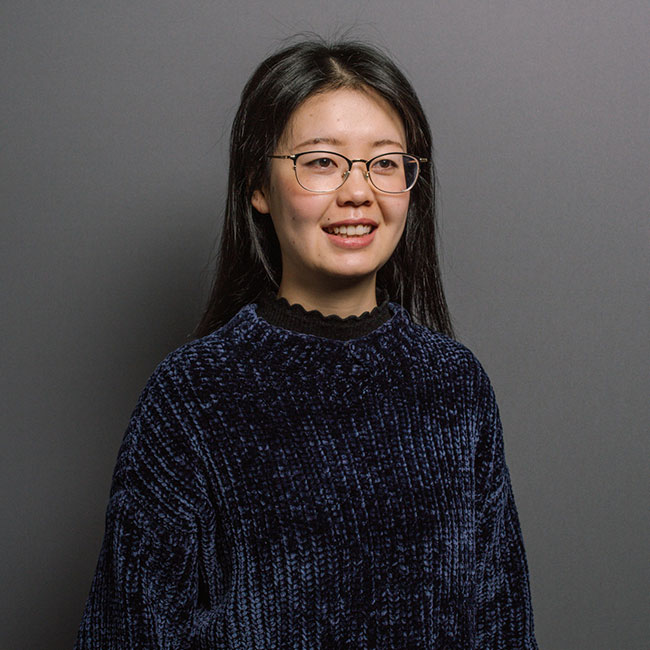
I’m Liming Yao, a senior lecturer in Real Estate in Sheffield Business School. My research focuses on housing issues, urban studies, and migrant studies. I specifically focus on why housing is becoming unaffordable for younger generations, disadvantaged groups, and migrants. One key area of my work is examining why it’s so difficult for younger people and those from disadvantaged backgrounds to afford homes. By analysing economic factors, I explore how rising house prices, low incomes, and inequality contribute to this problem. My research helps guide policymakers in making housing more fair and accessible for those who struggle to get on the property ladder.
I also study the housing challenges faced by rural-to-urban migrants in China. My research explores housing issues such as discrimination based on residency status, income inequality, limited affordable housing options, restrictions on housing assistance, and difficulties with social integration. Another important part of my research is investigating whether migrants want to return to their home countries and how housing difficulties influence their decisions. My work emphasises the need for better policies that help migrants find suitable housing.
In my ECRIF research project, I will explore how housing problems and job insecurity are connected for migrants. Migrants often face challenges in securing stable housing, which in turn affects their ability to afford a permanent home. My research examines how these issues are linked and their impact on migrants’ well-being. This project calls for the need for policies that address both housing and employment challenges faced by migrants, helping to better understand how economic instability affects both housing and migration. Ultimately, it seeks to develop solutions that promote greater equality and opportunity for all.
